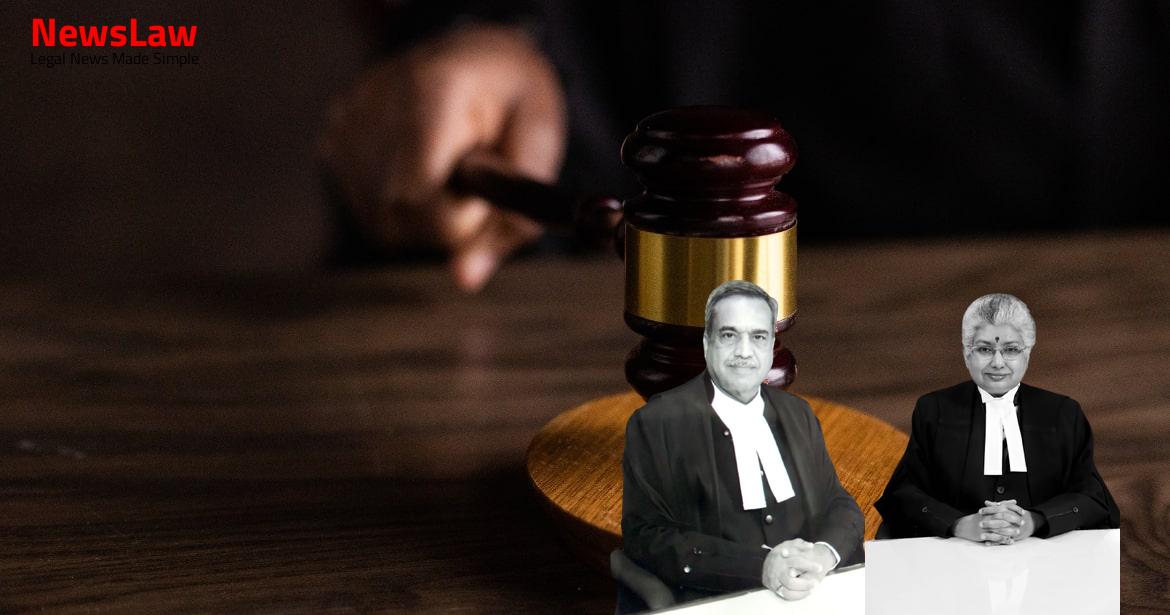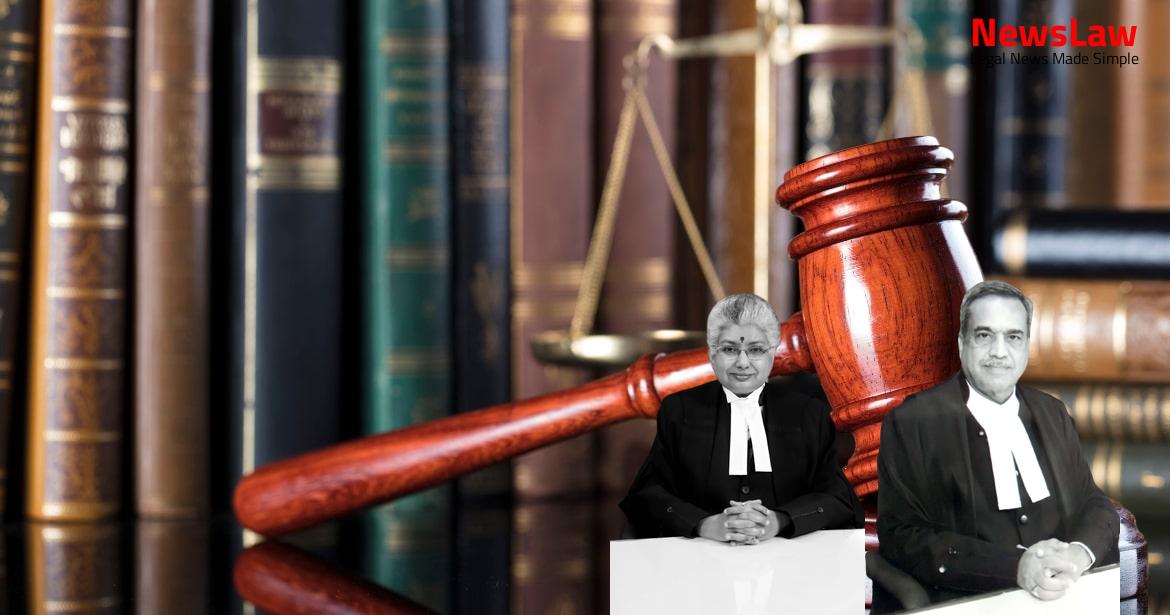The legal analysis provided by the court in a recent decision regarding arbitration clause interpretation sheds light on the importance of adhering to agreed procedures. The case emphasizes the forfeiture of the right to appoint an arbitrator when failing to do so within the prescribed time, as per the parties’ agreement. The court’s interpretation clarifies the significance of upholding contractual obligations in arbitration proceedings, ensuring a fair and efficient dispute resolution process.
Facts
- The appellant filed an application under Section 11(6) of the Arbitration and Conciliation Act, 1996, requesting the appointment of a sole arbitrator.
- The High Court of Judicature at Allahabad passed an order allowing the application under Section 11(6) filed by the appellant.
- The High Court directed the respondent to send a fresh panel of four retired officers as per clause 64(3)(b) of the General Conditions of Contract (GCC).
- The appellant was to select two arbitrators from the panel, and the respondent would then constitute the Arbitral Tribunal per clause 64(3)(b) of the GCC.
- The appellant and respondent had entered into a contract with an arbitration clause, according to clause 32 of the agreement.
- Clause 32 stated that any dispute shall be referred to the sole arbitration of a person appointed by the General Manager/Railway.
- The appellant requested the appointment of an arbitrator as per clause 32, but the General Manager/Railway failed to do so.
Also Read: Challenging Legal Presumptions in Negotiable Instrument Cases
Arguments
- Respondent failed to appoint an arbitrator despite invocation of arbitration clause.
- Reference to the case of Deep Trading Company vs Indian Oil Corporation and Others; (2013) 4 SCC 35 for precedence.
- Claim that respondent forfeited its right to appoint an arbitrator under the agreement.
- Request for High Court to appoint a sole arbitrator under Section 11(6) of the Act.
- Assertion that parties are governed by the arbitration agreement in clause 32 of the agreement.
- Appellant’s dissatisfaction with the High Court’s decision to not appoint a sole arbitrator and instead direct appointment as per GCC.
- The appellant argues that the General Conditions of Contract (GCC) should not be applicable in the present case as the parties did not sign the GCC and it was not referenced in the original agreement.
- The appellant points out that even as per a communication dated 16.07.2020, the GCC was to be applicable with prospective effect only to works contracts on Indian Railways.
- The respondent, represented by Shri K.M. Nataraj, acknowledges that the General Manager/Railway failed to appoint the sole arbitrator per the agreement after the arbitration clause was invoked.
- The respondent, however, cannot explain how the GCC should be applied to an agreement that predates the GCC’s introduction in July 2020, especially when there is no mention of the GCC in the original agreement or signatures from the parties.
- Due to the lack of support from the respondent, the High Court’s decision to constitute an Arbitral Tribunal as per clause 64(3)(b) of the GCC is being contested.
Also Read: Legal Analysis of Admission Irregularities in Educational Institutions
Analysis
- The appellant and the respondent are bound by the arbitration clause in the agreement.
- In the Deep Trading Company case, it was held that failing to appoint an arbitrator within the prescribed time forfeits the right to appoint an arbitrator.
- The respondent failed to appoint an arbitrator as per the agreed procedure in the present case.
- The General Conditions of Contract (GCC) were not part of the main agreement between the parties.
- The respondent forfeited its right to appoint an arbitrator, and the appellant approached the High Court for appointment under Section 11(6) of the Act.
- The High Court directed to constitute an Arbitral Tribunal as per the GCC, which was not applicable to the parties.
- It was held that once an arbitrator is not appointed as per the agreed procedure, the right to appoint is forfeited, and the Chief Justice should appoint under Section 11(6) of the Act.
- The decision of the General Manager of the Railway on disputes within ‘excepted matters’ is final and binding on the parties.
- If the arbitrator is unable to act or the award is set aside, a replacement arbitrator can be appointed.
- Only the person appointed by the authority can act as an arbitrator; if not possible, the matter cannot be referred to arbitration.
- Disputes are to be resolved through arbitration as per clause 32 of the original agreement.
- The arbitrator, even if a Government servant, can handle matters related to the agreement with previous involvement not being an issue.
- The award of the arbitrator is deemed final and binding on the parties involved.
- The High Court erred in directing to constitute an Arbitral Tribunal based on non-binding provisions of the General Conditions of Contract
- The judgment and order of the High Court directing the constitution of the Arbitral Tribunal under a specific clause of the GCC is unsustainable and is quashed and set aside
- The Chief Justice or his nominee should have appointed a sole arbitrator/arbitrator under Section 11(6) of the Act, which the High Court failed to do
Also Read: Legal Analysis: Driver Appointment Dispute
Decision
- The matter was not remanded to the High Court to appoint a sole arbitrator to avoid further delay.
- With the consent of the respective parties’ counsel, Smt. Justice R. Banumathi, a former judge of this Court, was appointed as the sole arbitrator.
- No costs were awarded in this decision.
- The appeal was allowed, and the appointment of a sole arbitrator was made without remanding the matter to the High Court.
Case Title: M/S CONTINENTAL INDIA PRIVATE LIMITED Vs. GENERAL MANAGER NORTHERN RAILWAY (2022 INSC 755)
Case Number: C.A. No.-004829-004829 / 2022



